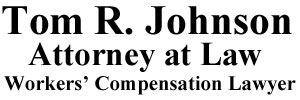Without procedural access to meaningful cross-examination of a denial of care reviewer Labor Code 4610 et. seq., violates the constitutional right to due process.
 Under the federal Constitution, “[procedural due process imposes constraints on governmental decisions which deprive individuals of liberty or property interest within the meaning of the Due Process clause of the Fifth or Fourteenth Amendment”. (Mathews v. Eldridge (1976) 424 U.S. 319, 332; See also Ryan v. California Interscholastic Federation (2001) 94 Cal. App. 4th 1058, 1059.) In considering due process challenges to procedural schemes, three factors are relevant. First is the private interest that will be affected by the official action. Second is the risk of an erroneous deprivation of such interest through the procedures used, and the probable value, if any, of additional or substitute procedural safeguards. Third is the government’s interest, including the function involved and the fiscal and administrative burdens that the additional or substitute procedural requirement would entail. (Zuckerman v. State Bd of Chiropractic Examiners (2002) 29 Cal. 4th 32, 43, citing Mathews v. Eldridge, supra, 424 U.S. at pp334-335.) California Constitution Article 1 Declaration of Rights Sec. 7. (a) states, “A person may not be deprived of life, liberty, or property, without due process of law…” The essentials of due process are regular and orderly procedure in a court of competent jurisdiction, notice to defendant, opportunity for defendant to be heard , and a fair hearing. (State Acting by and Through Dept. Of Water Resources v. Natomas Co. (1966) 239 Cal.App.2d 547.)
Under the federal Constitution, “[procedural due process imposes constraints on governmental decisions which deprive individuals of liberty or property interest within the meaning of the Due Process clause of the Fifth or Fourteenth Amendment”. (Mathews v. Eldridge (1976) 424 U.S. 319, 332; See also Ryan v. California Interscholastic Federation (2001) 94 Cal. App. 4th 1058, 1059.) In considering due process challenges to procedural schemes, three factors are relevant. First is the private interest that will be affected by the official action. Second is the risk of an erroneous deprivation of such interest through the procedures used, and the probable value, if any, of additional or substitute procedural safeguards. Third is the government’s interest, including the function involved and the fiscal and administrative burdens that the additional or substitute procedural requirement would entail. (Zuckerman v. State Bd of Chiropractic Examiners (2002) 29 Cal. 4th 32, 43, citing Mathews v. Eldridge, supra, 424 U.S. at pp334-335.) California Constitution Article 1 Declaration of Rights Sec. 7. (a) states, “A person may not be deprived of life, liberty, or property, without due process of law…” The essentials of due process are regular and orderly procedure in a court of competent jurisdiction, notice to defendant, opportunity for defendant to be heard , and a fair hearing. (State Acting by and Through Dept. Of Water Resources v. Natomas Co. (1966) 239 Cal.App.2d 547.)
Mathews v. Eldridge confirms a due process violation under these circumstances.
The first factor of the private interest that will be affected by the official action. Here an injured worker is denied access to medical care recommended by their treating physician for 12 months, obviously important
Second, the risk of an erroneous deprivation of such interest through the procedures used, and the probable value, if any, of additional or substitute procedural safeguards.
Unknown doctors are reviewing mass amounts of medical data without and exam or an opportunity to question a patient for very little money. The risk of error is high without a face to face exam and no opportunity to question the reviewer. While the probative value of cross examination is solidified as a constitutional right guaranteed by the Sixth Amendment and made applicable to the States by the Fourteenth Amendment
“In almost every setting where important decisions turn on questions of fact, due process requires an opportunity to confront and cross-examine adverse witnesses Goldberg v. Kelly, 397 U.S. 254, 90 S. Ct. 1011, 25 L. Ed. 2d 287 (1970).
Finally the government’s interest, including the function involved and the fiscal and administrative burdens that the additional or substitute procedural requirement would entail. In most cases injured workers are not allowed to seek care under doctors they know and trust. Instead they are forced to see doctors regulated and controlled by the insurance companies. It is disingenuous to argue that insurance carriers could not shoulder the burden of the costs of a deposition when they choose to deny the care being offered by th every doctors they force the injured worker to go see. The insurance carriers that decide to deny care recommended by the very doctors they force the injured worker justifies the negligible expense of ensuring the constitutional right to cross-examination.

